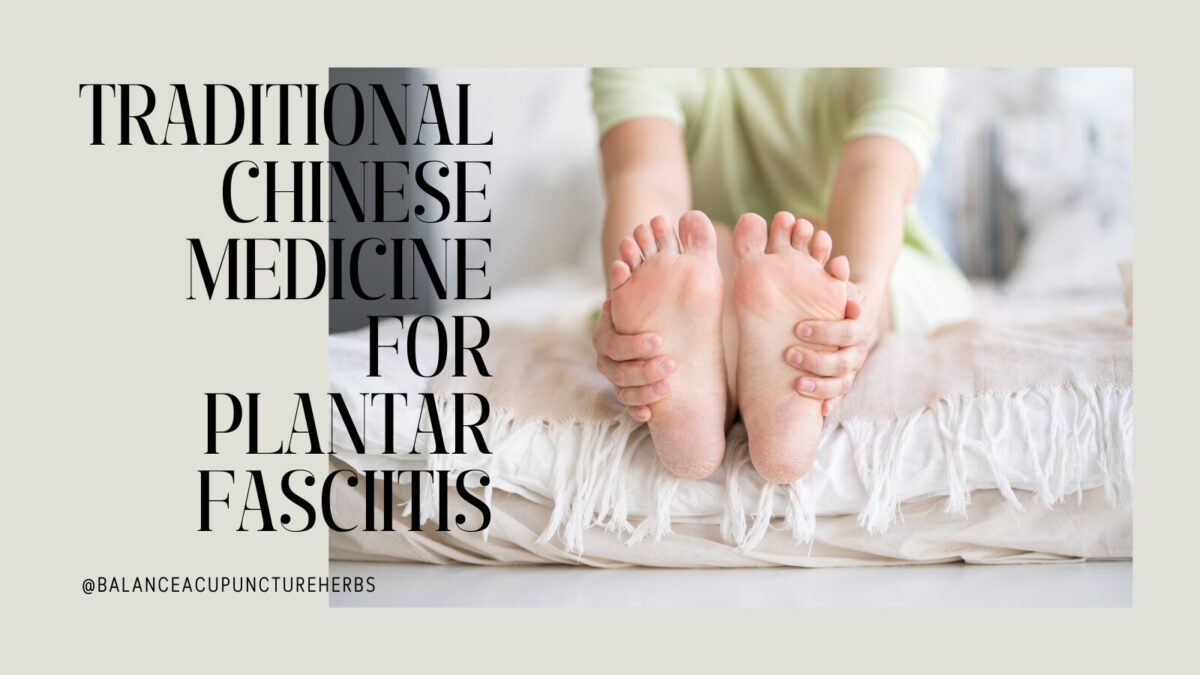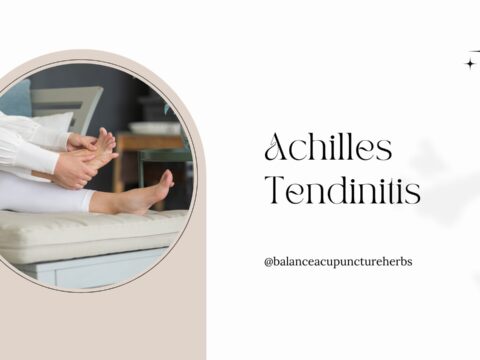
Sprained Ankle
January 8, 2025
Shingles (Herpes Zoster): A Clinical Perspective on Acupuncture and Chinese Herbal Medicine
January 25, 2026|
Getting your Trinity Audio player ready...
|
Traditional Chinese Medicine for Plantar Fasciitis: A Holistic Approach to Healing Heel Pain
Introduction
Plantar fasciitis is a painful condition that affects millions of people worldwide, causing sharp heel pain, stiffness, and difficulty walking. While conventional treatments like stretching, orthotics, and medications can provide relief, many individuals are turning to acupuncture and Traditional Chinese Medicine (TCM) for a more holistic and natural approach to healing.
In this blog post, we’ll explore how acupuncture and TCM can help alleviate plantar fasciitis pain, the principles behind these ancient practices, and what you can expect from a treatment session. If you’re seeking a drug-free, non-invasive solution for heel pain, keep reading!
What is Plantar Fasciitis?
Plantar fasciitis occurs when the plantar fascia—a thick band of tissue connecting the heel bone to the toes—becomes inflamed or irritated. Common causes include:
- Repetitive strain or overuse
- Poor footwear
- Tight calf muscles
- High arches or flat feet
- Prolonged standing or walking
Symptoms often include:
- Sharp heel pain, especially in the morning
- Stiffness and tenderness in the foot
- Pain that worsens after activity
While rest and conventional treatments can help, they don’t always address the root cause of the pain. This is where acupuncture and TCM come in.
How Acupuncture and TCM Work for Plantar Fasciitis
Traditional Chinese Medicine (TCM) views health as a balance of energy, or qi, flowing through the body. When this flow is disrupted, pain and illness can occur. Acupuncture, a key component of TCM, involves inserting thin, sterile needles into specific points on the body to restore balance and promote healing.
For plantar fasciitis, acupuncture and TCM focus on:
- Relieving Pain: Acupuncture stimulates the release of endorphins, the body’s natural painkillers, reducing the sharp pain associated with plantar fasciitis.
- Reducing Inflammation: By improving blood flow to the affected area, acupuncture helps reduce inflammation and promote tissue repair.
- Addressing Root Causes: TCM takes a holistic approach, identifying and treating imbalances in the body that contribute to plantar fasciitis, such as poor circulation, muscle tension, or stress.
- Improving Mobility: Tight muscles and fascia can limit movement. Acupuncture helps relax these tissues, improving flexibility and range of motion.
Benefits of Acupuncture and TCM for Plantar Fasciitis
- Natural Pain Relief: Avoid the side effects of medications with a drug-free approach to pain management.
- Holistic Healing: TCM treats the whole person, not just the symptoms, promoting overall well-being.
- Non-Invasive: No surgery or injections required—just thin, sterile needles and a relaxing experience.
- Long-Term Results: By addressing the root cause of the pain, acupuncture and TCM can provide lasting relief.
What to Expect During an Acupuncture and TCM Session
If you’re new to acupuncture and TCM, here’s what you can expect during a session:
- Consultation: Your practitioner will assess your symptoms, medical history, and lifestyle to create a personalized treatment plan.
- Treatment: Thin needles will be inserted into specific points on your foot, ankle, and possibly other areas of the body. Most people feel minimal discomfort, if any.
- Additional Therapies: Your practitioner may recommend complementary TCM therapies, such as cupping, herbal medicine, or moxibustion, to enhance your treatment.
- Relaxation: You’ll rest for 20–40 minutes while the needles work their magic. Many people feel deeply relaxed during this time.
- Follow-Up: Your practitioner may recommend a series of sessions for optimal results, depending on the severity of your condition.
Scientific Evidence Supporting Acupuncture and TCM
Research supports the use of acupuncture and TCM for plantar fasciitis:
- A 2017 study in the Journal of Acupuncture and Meridian Studies found that acupuncture significantly reduced pain and improved function in patients with plantar fasciitis.
- Another study in the Journal of Pain Research highlighted acupuncture’s ability to reduce inflammation and promote tissue repair.
These studies suggest that acupuncture and TCM are viable, evidence-based options for managing plantar fasciitis pain.
Tips for Managing Plantar Fasciitis Naturally
In addition to acupuncture and TCM, try these natural strategies to manage your heel pain:
- Stretch Regularly: Focus on stretching your calf muscles and plantar fascia to reduce tension.
- Wear Supportive Footwear: Choose shoes with good arch support and cushioning.
- Use Ice Therapy: Apply ice to the affected area to reduce inflammation and pain.
- Rest and Recover: Avoid overloading your feet and give them time to heal.
- Try Chinese Herbal Medicine: TCM herbs like turmeric, ginger, and boswellia can help reduce inflammation and promote healing.
Why Choose Acupuncture and TCM for Plantar Fasciitis?
Acupuncture and TCM offer a natural, effective, and holistic approach to managing plantar fasciitis. Unlike medications or invasive treatments, they address the root cause of your pain and promote overall well-being. If you’re tired of living with heel pain, acupuncture and TCM might be the solution you’ve been searching for.
Ready to try acupuncture and TCM for plantar fasciitis? Book a consultation with a licensed acupuncturist or TCM practitioner today and take the first step toward a pain-free life. Have you tried acupuncture or TCM for heel pain?
Disclaimer: This blog post is for informational purposes only and should not be considered medical advice. Always consult with a licensed healthcare professional before starting any new treatment.
Read More:
Effective Chinese Medicine for Menopausal Women
Detox Symptoms After Acupuncture
During an acupuncture treatment, is the pain good or not?
How Often Should You Have Acupuncture
Woman’s Health and Acupuncture
[wpseo_all_locations id=”all” max_number=”200″ show_state=”1″ show_country=”1″ show_phone=”1″ show_phone_2=”0″ show_fax=”0″ show_email=”0″ show_logo=”0″ orderby=title order=ASC]
[wpseo_map id=”all” max_number=”200″ width=”400″ height=”300″ zoom=”-1″ map_style=”roadmap” scrollable=”1″ draggable=”1″ marker_clustering=”0″ show_route=”0″ show_state=”0″ show_phone=”1″ show_phone_2=”0″ show_fax=”0″]




